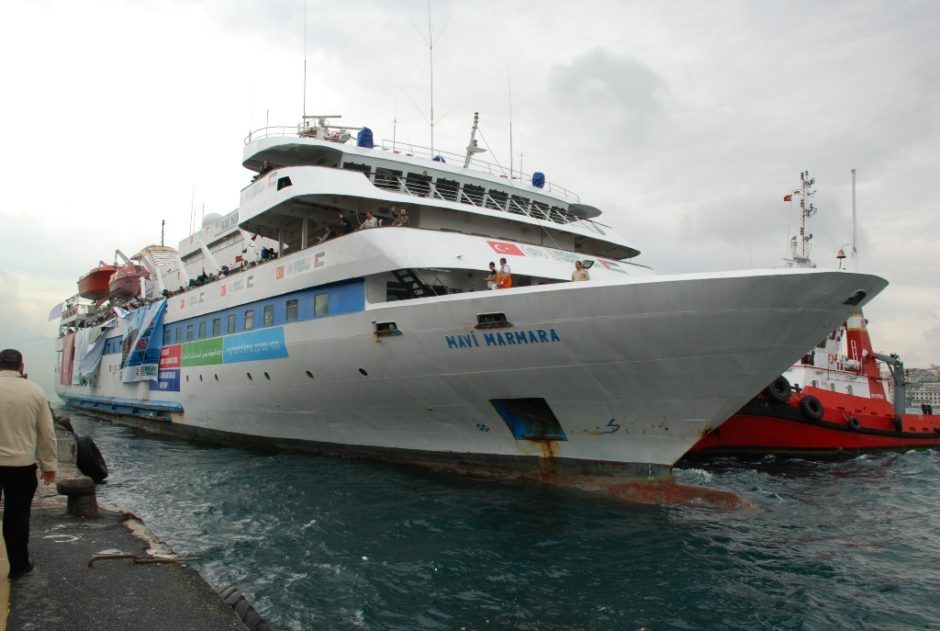Israel’s reconciliation agreement with Turkey, announced on June 27 by the Israeli and Turkish prime ministers, Benjamin Netanyahu and Binali Yildirim, was six years in the making and is a win-win outcome for both sides.
At a time of great ferment, instability and uncertainty in the Middle East, Israel’s rapprochement with Turkey, once its closest Muslim ally in the region, represents a victory for common sense, pragmatism and Realpolitik.
With Syria mired in a civil war, Iraq and Yemen torn by sectarian tensions, Libya convulsed by chaos and Egypt under attack by Islamic State, which threatens the established regional order, a positive and stable relationship between the two most powerful countries in the area is of no small importance.
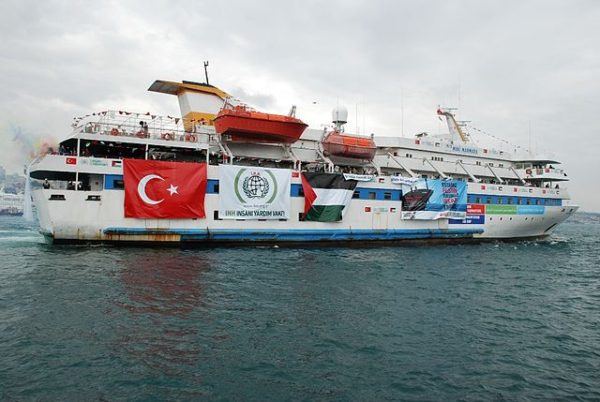
Israel’s relations with Turkey imploded on May 31, 2010, when Israeli commandos stormed the Mavi Marmara, a Turkish ship in a six-vessel flotilla trying to break the Israeli naval blockade of the Gaza Strip, which has been ruled by Hamas — Israel’s bitter Islamic fundamentalist enemy and Turkey’s friend — for the past decade.
Nine Turkish nationals and an ethnic Turk holding American citizenship were killed in the violent melee, and another Turk later died of his wounds. In short order, Turkey downgraded its bilateral relations with Israel, recalling its ambassador in Tel Aviv and ordering Israel’s envoy in Ankara to leave.
It was not the first time Turkey had lowered the level of its relations with Israel. Turkey did so in 1956, when Israel invaded Egypt in collusion with France and Britain, and in 1980, when Israel declared that East Jerusalem was an integral part of its unified capital.
In any event, the Mavi Marmara incident capped a year of increasing tension between Israel and Turkey, caused by Israel’s invasion of Gaza in 2009 and Turkish Prime Minister Recep Tayyip Erdogan’s denunciation of Israel at the World Economic Forum in Davos, Switzerland, that year.
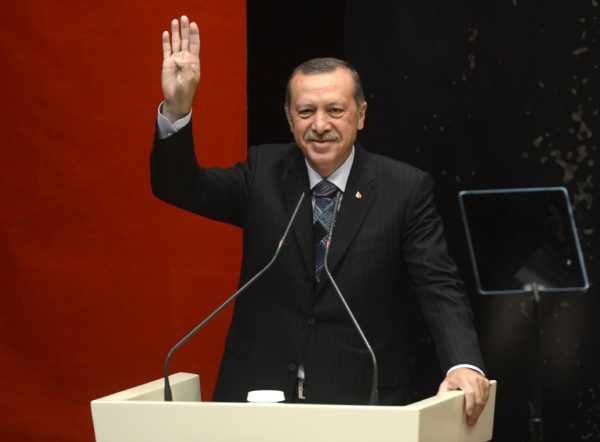
After the clash on the high seas, Turkey demanded an apology and compensation from Israel, as well as the lifting of the naval siege. In a miscalculation, Israel refused to accede to Turkey’s demands. But in March 2013, at the behest of U.S. President Barack Obama, Netanyahu phoned Erdogan to apologize. Erdogan accepted his apology, and subsequently, Israeli and Turkish diplomats met regularly in Europe to work out a deal.
As they closed in on an accord in protracted negotiations, Turkey softened its position toward Israel.
Erdogan, whose country has been victimized by terrorist attacks, said he was ready “to cooperate with Israel against terrorism.”
Turkey, the sole Muslim member of NATO, withdrew its objection to plans by Israel to open a permanent mission in Brussels, the headquarters of the Western military alliance.
Turkish diplomats, for the first time in six years, attended Israel Independence Day celebrations at the Israeli embassy in Ankara.
At the end of May, Netanyahu told visiting U.S. congressmen that an agreement was very close at hand. On June 17, Yildirim said that Turkey was interested in improving relations with several nations, singling out Israel, Syria, Russia, Egypt. “We cannot have permanent enmity with these countries,” he noted.
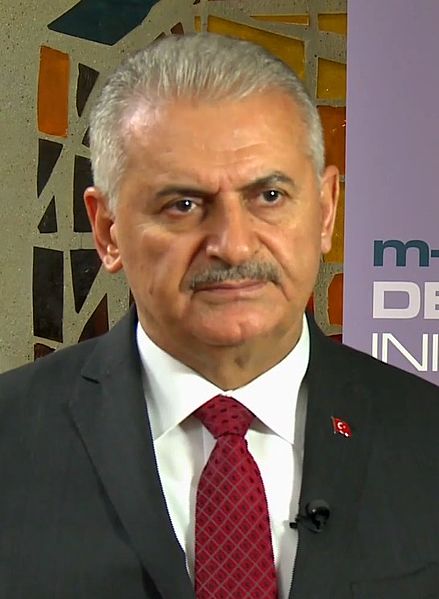
Yildirim’s predecessor, Ahmet Davutoglu, had formulated a policy of “zero problems” with Turkey’s neighbors. It worked well as Turkey — the successor state of the Ottoman Empire — extended and deepened its clout in the Arab world. But as Arab states descended into violence in the wake of the Arab Spring in 2011, Turkey lost its foothold in Syria, its chief Arab ally.
Turkey supported the Muslim Brotherhood presidency of Mohammed Morsi in Egypt. But after Morsi was deposed in a coup in 2013 by Abdul Fattah al-Sisi, the defence minister and former chief of staff of the armed forces, Egypt downsized its relations with Turkey.
In Iraq, too, Turkey’s influence took a battering.
As a result of these developments, Turkey’s standing in the Middle East crumbled significantly.
Last November, the Turks shot down a Russian fighter jet that had briefly penetrated Turkish air space, prompting Russia to downgrade its diplomatic and commercial relations with Turkey.
“Zero problems” with neighbors degenerated into “zero relations” with neighbors, as one wag put it.
Taken together, these adverse events prompted Turkey to seek a renewal of ties with Israel. Turkey, the first Muslim nation to recognize Israel, upgraded its relations with Israel to the ambassadorial level in the early 1990s. Israel and Turkey forged close military and intelligence relations. Before the first war in Gaza broke out in 2008-2009, Turkey played a mediation role in trying to forge a peace agreement between Israel and Syria. On the eve of that war, Erdogan paid a state visit to Israel.
Under yesterday’s reconciliation accord, Israel will deposit $20 million into a special fund for the families of the Mavi Marmara victims, and Turkey will drop criminal charges it had filed against Israeli army officers.
Contrary to Israel’s wishes, Turkey will not close Hamas offices in Istanbul and Ankara, but has assured the Israeli government that Hamas operatives will not orchestrate attacks on Israel from its soil.
Turkey has also promised to try to find the bodies of two Israeli soldiers killed in the 2014 Gaza war and two Israeli civilians who disappeared in Gaza.
Turkey had demanded an end to the blockade of Gaza, but Israel resisted. Instead, Turkey will be allowed to ship supplies to Gaza via the Israeli port of Ashdod. “Our first ship loaded with over 10,000 tonnes of humanitarian aid will leave for Ashdod on Friday,” said Yildirim yesterday.
Turkey will also be permitted to build a hospital, power station and desalination plant in Gaza.
“We are returning to full normalization with Turkey, including the return of ambassadors,” Netanyahu said in announcing yesterday’s agreement.“Our vital interests are advanced by this deal. I’m not entering a honeymoon. And I’m not presenting this agreement through rose-colored spectacles. But this agreement strengthens Israel.”

As Netanyahu indicated, Israel’s rapprochement with Turkey does not mean their old alliance has been or will be resurrected. This will be a sober and business-like partnership strictly based on common interests.
Israel and Turkey have a strategic interest in containing Iranian influence, particularly in Syria, and in combating Islamic State, whose objective is to upend the status quo and establish a borderless caliphate in the Middle East.
Israel, having discovered massive gas deposits in the Mediterranean Sea, may be permitted to build a natural gas pipeline to Turkey. This would be hugely beneficial to Israel and Turkey, whose thriving economic relationship was never once disrupted by the rupture in diplomatic relations.
Although Israel and Turkey have taken a giant step in normalizing relations, they still have serious differences over Hamas and the Palestinian question.
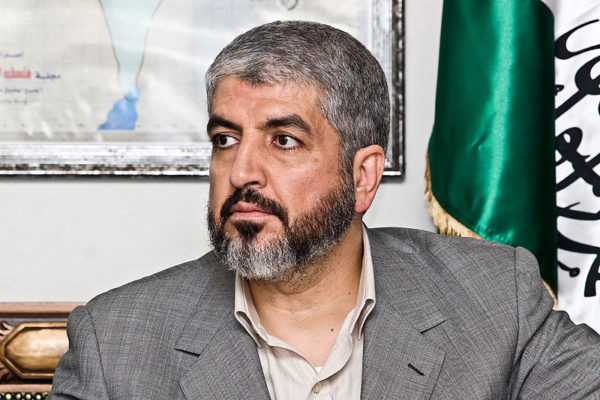
On June 25, Erdogan received Hamas leader Khaled Mashaal, who was the object of an Israeli assassination attempt in Amman some years ago. And Turkey maintains that Israel must accommodate itself to full Palestinian statehood. Turkey believes that a Palestinian state, with East Jerusalem as its capital., should be established in the West Bank and Gaza.
